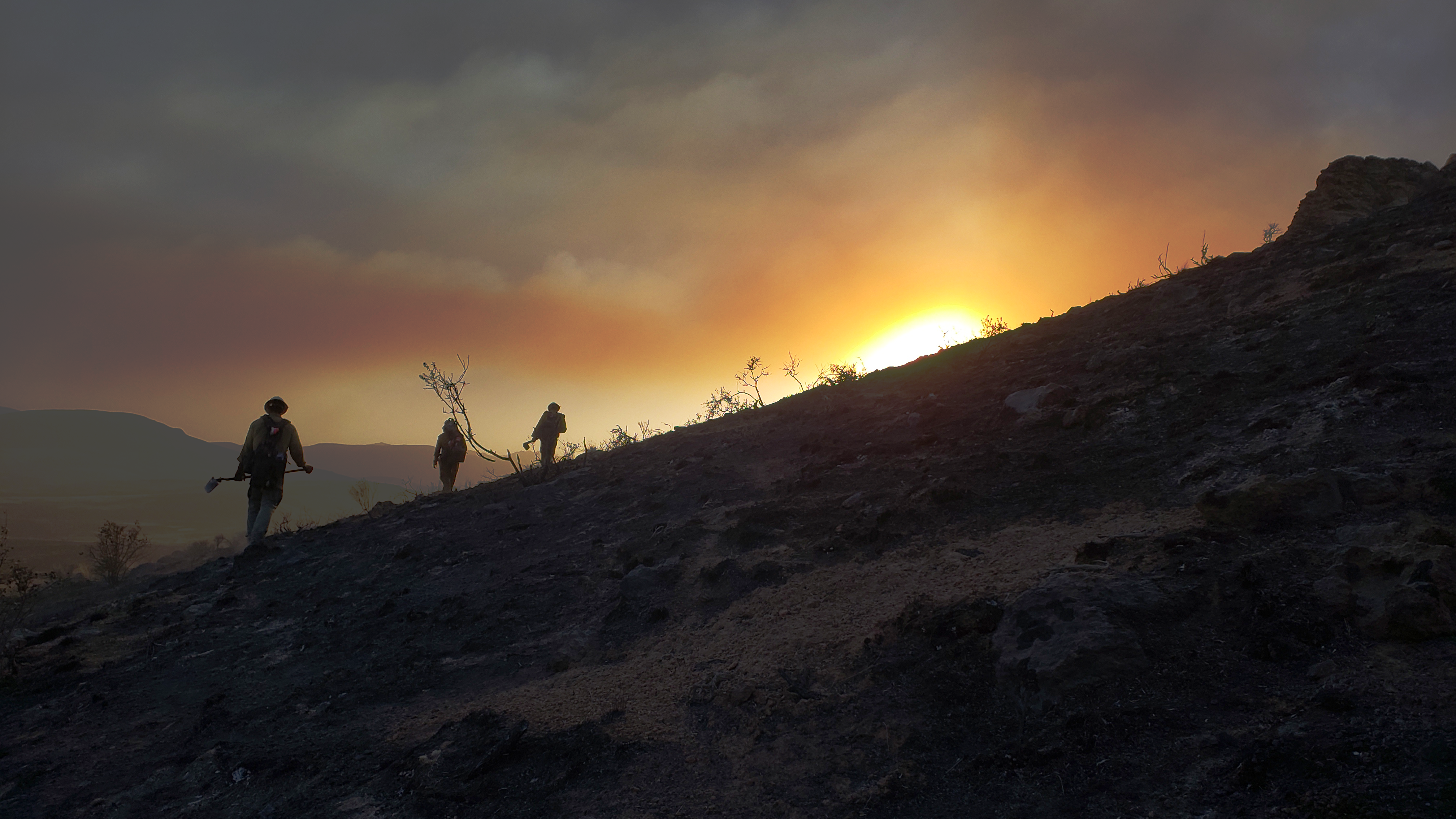
Twin Peaks Type 2 Initial Attack (T2IA) is a State of Utah wildland fire suppression resource based out of the Lone Peak Conservation Center (LPCC) in Draper, Utah. Twin Peaks T2IA are hosted and sponsored by the Utah Department of Natural Resources (DNR), Division of Forestry, Fire, and State Lands (FFSL).
Crew Dynamics
Twin Peaks consists of four permanent career fire technicians and 17 seasonal wildland firefighters. The crew moves between incidents in custom “six-pack” vehicles that are specifically designed for the job of a high functioning Initial Attack crew.
The Twin Peaks program receives dispatch orders through the Northern Utah Inter-Agency Fire Center (NUIFC) as a nationally available resource, we respond to a variety of requests involving wildland fire management and all-risk type assignments. While not assigned to these incidents, the Twin Peaks program provides fuel mitigation and land management services for both public and private lands. These services provide our crewmembers specialized training in a cohesive environment while keeping us in a constant state of readiness for fire suppression activities.
History
Twin Peaks was established in 2004 in response to the growing need for wildfire suppression resources on the Wasatch Front. The name “Twin Peaks” recognizes one of the many geographical landmarks eclipsing the Lone Peak Conservation Center.
The history of success for the Twin Peaks program disseminates from pride in ethics and professionalism. This has rewarded us with various opportunities for severity details and pre-positioning in areas with historically high wildfire frequency. Quality leadership provides our personnel a necessary emphasis for maintaining crew safety while providing successful practices for wildfire management
The Twin Peaks program has integrated with the Wildland Internship Program at Utah Valley University (UVU). This will provide students who enroll in the ESWF 1400 course an invaluable opportunity for engaged learning while contributing to a dynamic work environment. Individual development and quality training provide our crewmembers the strong foundation that is required for success in performance-related tasks. The Twin Peaks program abides by the national training guidelines for wildland firefighters and considers these guidelines prime importance.
